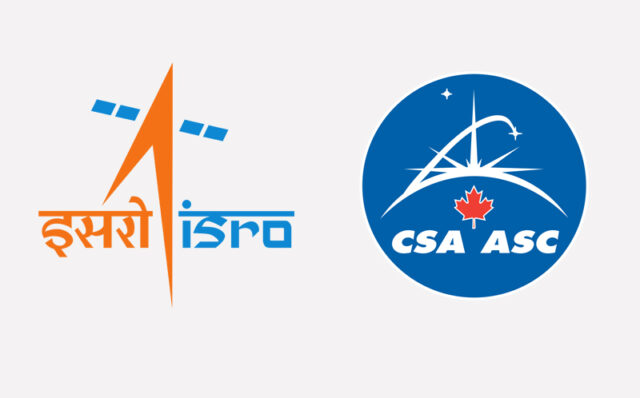India and Canada have long recognized the importance of scientific and technological cooperation in fostering innovation, economic growth, and addressing global challenges. Over the years, both countries have forged strong partnerships in various fields, ranging from space exploration to clean energy. In recent years, bilateral cooperation has witnessed significant progress with the signing of several Memorandums of Understanding (MoUs) and the implementation of joint initiatives.
1. Space Exploration and Satellite Technology
India’s Indian Space Research Organisation (ISRO) and the Canadian Space Agency (CSA) have been actively collaborating in space exploration and satellite technology. In 2022, an MoU was signed between the two agencies to enhance cooperation in areas such as earth observation, satellite communication, and space science research. In 2023, the collaboration gained further momentum with the joint launch of a satellite mission aimed at monitoring climate change and enhancing disaster management capabilities. The mission involved the sharing of technical expertise and resources, marking a significant step forward in India-Canada space cooperation.
2. Renewable Energy and Clean Technologies
Both India and Canada recognize the importance of transitioning to a sustainable energy future. In 2022, an MoU was signed between India’s Ministry of New and Renewable Energy and Canada’s Natural Resources Canada to promote collaboration in clean energy technologies, including solar, wind, and energy storage. This partnership aims to facilitate knowledge exchange, research collaboration, and joint projects to drive innovation in the renewable energy sector. In 2023, the collaboration expanded further with the establishment of a joint research and development centre focusing on advanced battery technologies for electric vehicles and grid storage.
3. Artificial Intelligence (AI) and Digital Innovation
India and Canada are at the forefront of AI and digital innovation, and both countries recognize the transformative potential of these technologies across various sectors. In 2022, the National Research Council of Canada (NRC) and India’s Ministry of Electronics and Information Technology (MeitY) signed an MoU to promote collaboration in AI research, development, and application. This partnership aims to leverage the respective strengths of both countries in AI and foster knowledge exchange and capacity building. In 2023, the collaboration was further strengthened with the launch of joint initiatives focused on AI ethics, data governance, and responsible AI deployment.
4. Biotechnology and Healthcare
India and Canada have a strong foundation of cooperation in the fields of biotechnology and healthcare. In 2022, an MoU was signed between India’s Department of Biotechnology (DBT) and Canada’s National Research Council (NRC) to promote joint research and development in biotechnology, with a focus on areas such as genomics, precision medicine, and biopharmaceuticals. This collaboration aims to foster innovation, facilitate technology transfer, and address global health challenges. In 2023, the partnership expanded further with the launch of joint projects in vaccine development and infectious disease research, emphasizing the importance of scientific collaboration in combating pandemics and improving public health outcomes.
The science and technological cooperation between India and Canada has witnessed remarkable progress in recent years, driven by their shared commitment to innovation, sustainable development, and addressing global challenges. The MoUs signed in 2022 and 2023 have provided a framework for collaboration in key areas such as space exploration, renewable energy, AI, and biotechnology. These partnerships have not only fostered scientific advancements but have also contributed to strengthening bilateral ties and promoting economic growth. As India and Canada continue to deepen their cooperation, there is immense potential for joint research, technology transfer, and the development of innovative solutions that can benefit both nations and the world at large.
In addition to the signing of Memorandums of Understanding (MoUs) and joint initiatives, the advancement of science and technology cooperation between India and Canada has been further facilitated through high-level visits. These visits by heads of scientific and technological agencies and government officials have played a crucial role in strengthening bilateral ties, promoting knowledge exchange, and exploring new avenues of collaboration.
Reciprocal Visits
A reciprocal series of visits between India and Canada has deepened bilateral cooperation in science and technology. Canadian Prime Minister Justin Trudeau’s February 2018 visit to India focused on strengthening collaboration in areas like space research, renewable energy, and AI. Dr. Mona Nemer, Canada’s Chief Science Advisor, visited India in September 2022 to foster joint scientific research and evidence-based decision-making. Likewise, Dr. K. Sivan, Chairman of ISRO, visited Canada in October 2022, enhancing collaboration in space exploration and satellite technology. These visits collectively aimed to promote knowledge exchange and research partnerships between the two nations.
The visits by heads of scientific and technological agencies from India and Canada have played a pivotal role in enhancing collaboration and promoting mutual understanding in areas of science and technology. These visits have provided platforms for discussions, knowledge exchange, and the identification of new avenues for cooperation. The engagement of leaders and experts from both countries signifies the commitment to strengthening bilateral ties and leveraging scientific advancements for the benefit of society. Through such visits, India and Canada continue to build upon their partnership and pave the way for innovative solutions, research collaborations, and technological advancements that can address global challenges and foster sustainable development.









